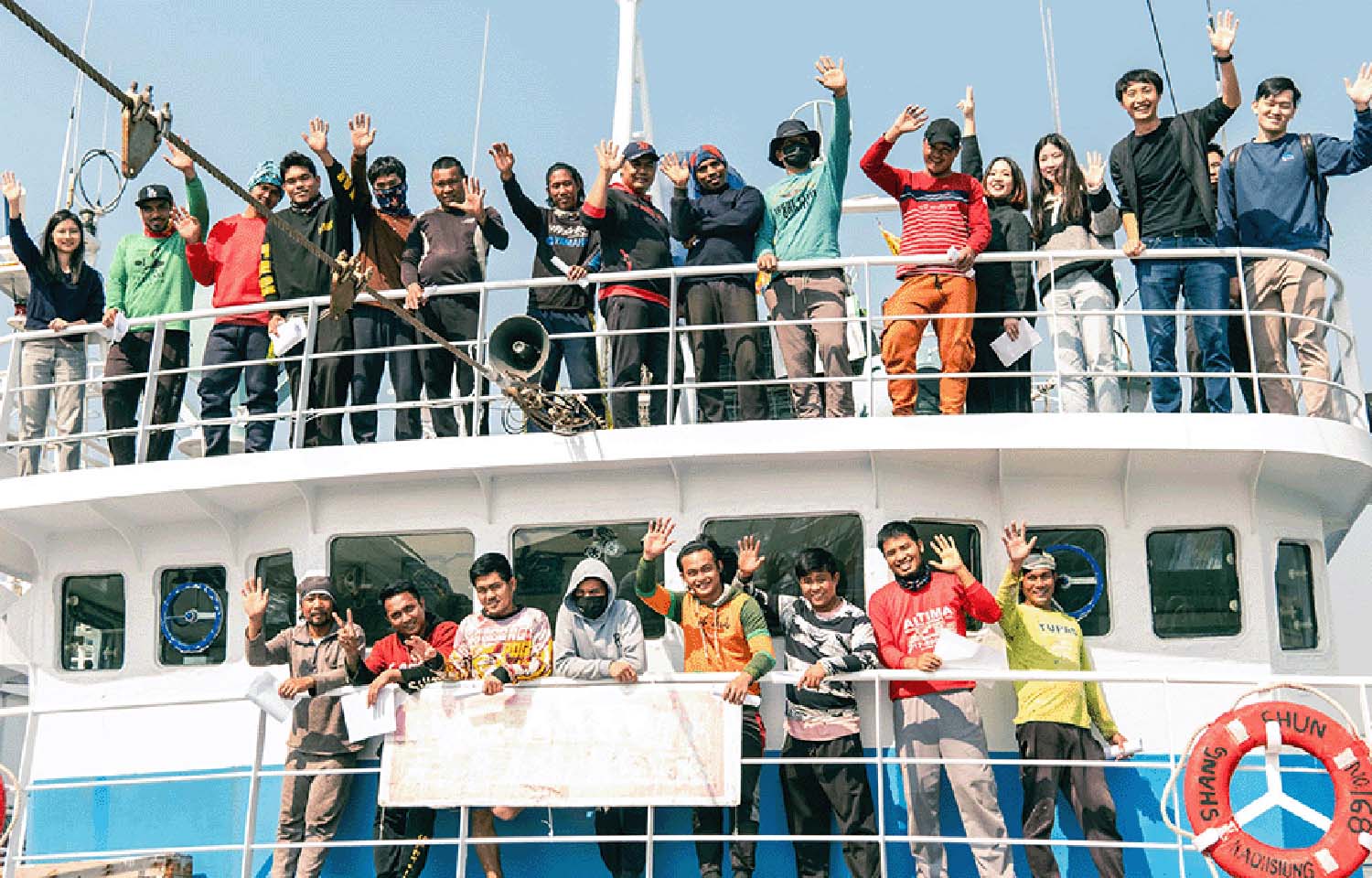Labor-focused NGO Global Labor Justice–International Labor Rights Forum has taken issue with a Taiwanese fishing industry suggestion that Wi-Fi internet connections could destabilize operations onboard vessels.
GLJ-ILRF has organized a multi-year campaign advocating for Wi-Fi to be installed on Taiwanese and other distant-water fishing vessels as a means of combating labor abuses. GLJ-ILRF Executive Director Jennifer Rosenbaum said she took issue with comments recently made by Taiwan Tuna Association Spokesperson Tony Lin to SeafoodSource that his organization is advocating for a limited and gradual approach to Wi Fi installation, as it was concerned unlimited internet access could create potential management issues and safety hazards.
“We disagree with that assertion,” Rosenbaum told SeafoodSource. “Fishers have died or suffered severe injuries because they were not able to communicate their medical condition to the outside world and receive the care they needed as a result. On the contrary to causing accidents and disputes, Wi-Fi is required to ensure accidents do not escalate to disabilities and deaths. Wi-Fi for fishers also ensures that instances of forced labor and abuse by captains can be reported and remedied in real-time.”
Rosenbaum took particular issue with Lin’s comment that “if crew members are excessively worried about their home situation, it may seriously hinder their work mood or even lead to occupational disasters or disputes.”
“The ‘work mood’ most affecting migrant fishers is the constant fear that their families have gone without income because they cannot verify that they have been paid or address wage theft before it is too late,” Rosenbaum said. “Wi-Fi access for fishers is practical and affordable.”
Rosenbaum said her organization has been in discussions with Taiwan’s fishing industry to develop a “managed and agreed-upon” way of implementing Wi-Fi at sea. The industry, she said, is “waking up to the harsh reality of the labor issues” facing migrant fishers in Taiwan.
“The seafood industry's sustainability hinges on labor rights and the right to communicate for fishers. When fishers have sufficient access to Wi-Fi on vessels, the Taiwan Tuna Association, and others in the industry can verify to their U.S. buyers that they do not have forced labor issues,” she said. “They need to provide Wi-Fi for the fishers in the longline fishery urgently, or the risk of buying from them will be deemed too high.”
The U.S. government has also begun to make inquiries about the issue with Taiwan’s government. The Taiwanese fishing industry hosted a delegation led by U.S. Department of Labor Deputy Undersecretary Thea Lee to “gain more practical understanding” of Taiwan's efforts to enhance the rights of migrant crew members onboard its distant-water fishing vessels.
Two other NGOs, Ocean Outcomes (O2) and One-Forty, recently announced they have joined forces to launch an education and training initiative for the estimated 22,000 foreign crew members work on Taiwan’s 1,127 distant-water fishing vessels. Many of the crew are Indonesian, Filipino, and Vietnamese without any fishing experience or Chinese language skills, according to One-Forty Founder Kevin Chen.
“Systematic training for migrant workers is essential to ensuring the sustainability of the fishing industry,” Chen said. “Through empowering migrant workers, it is possible to generate positive interactions and relationships amongst fishermen themselves, and between fishermen and captains and larger sustainability goals.”
The partnership will provide educational and vocational training and resources as migrant workers are being recruited, including providing information about their rights and responsibilities, safe fishing practices, and larger sustainability goals, according to Chen.
“Demand for migrant workers in the international fishery market is increasing,” Chen said. “Our programs provide training for this growing workforce in Taiwan, helping to equip them with more comprehensive industry knowledge, skills, and language communication abilities. This will contribute positively to the long-term development of the Taiwanese fishing industry.”
The program will initially focus on Taiwan Fishery Agency-affiliated vessels engaged in fishery improvement projects (FIPs), in order to help bridge a divide between market-driven environmental initiatives and labor conditions, according to O2 FIP Manager Ho-Tu Chiang.
“Supporting our partners in Taiwan with fishery improvement projects (FIPs) has deepened our understanding of opportunities to improve human rights and working conditions for crewmembers,” Chiang said. “Realizing this, we're building out more customized and worker-centric approaches to ensure crewmembers receive comprehensive and systematic guidance. The partnership with One-Forty will help us accelerate this approach.”
O2 and One-Forty said they eventually hope to scale the work across the Taiwanese distant-water fleet, and eventually across Southeast Asia.
“We believe our partnership with One-Forty represents a groundbreaking opportunity to integrate improved practices within a local context. This collaboration is more than a project; it's a potential blueprint for improved working conditions across Northeast Asia's Distant Water Fisheries,” Chiang said. “By successfully adapting to the unique complexities of working conditions in the industry, we can create a replicable model to inspire and guide similar initiatives throughout the region.”








